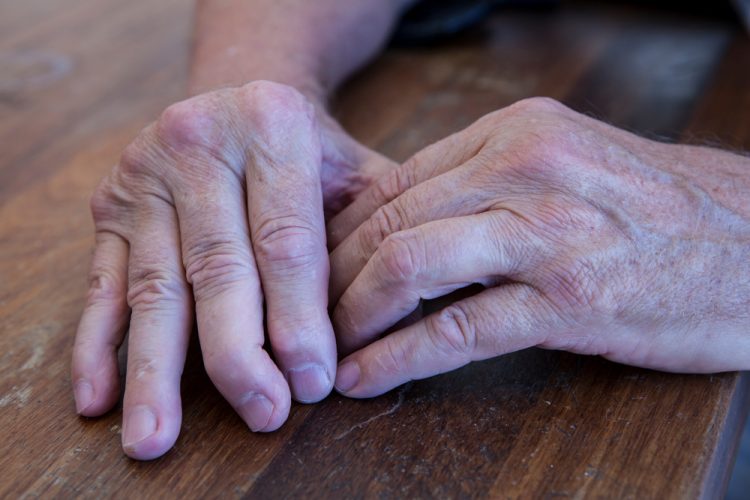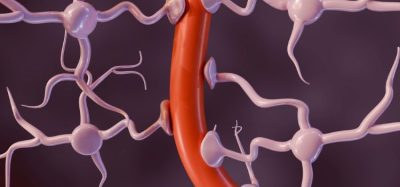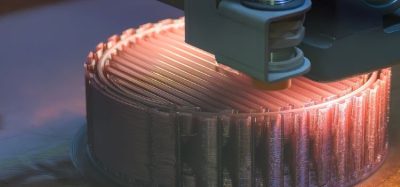AbbVie’s Skyrizi® shows long-term efficacy in psoriatic arthritis
Posted: 15 September 2022 | Hannah Balfour (European Pharmaceutical Review) | No comments yet
Similar rates of skin improvement at week 100 indicate Skyrizi® (risankizumab) has consistent long-term efficacy in psoriatic arthritis patients.


Long-term data from the KEEPsAKE trials shows more than half of adult psoriatic arthritis patients receiving Skyrizi® (risankizumab, 150mg) achieving a 90 percent reduction in the Psoriasis Area and Severity Index (PASI 90) and an American College of Rheumatology 20 (ACR20) response at 100 weeks.
The long-term data analyses of the Phase III KEEPsAKE 1 and 2 trials also revealed no new observed safety signals through 100 weeks. The results were presented at the 31st European Academy of Dermatology and Venereology (EADV) Congress.1
“We are pleased to share these new, nearly two-year analyses, which showed Skyrizi maintained improvements across joint and skin measures of psoriatic arthritis over time,” stated Dr Doina Cosma-Roman, vice president and global head, Clinical Development, Immunology, AbbVie. “It is critically important for physicians to have treatment options that demonstrate lasting efficacy, as we know people living with psoriatic arthritis discontinue therapies due to loss of efficacy or tolerability.”
KEEPsAKE 1 and 2 are both Phase III, multi-centre, randomised, double-blind and placebo-controlled studies designed to evaluate the safety and efficacy of Skyrizi in adult patients with active psoriatic arthritis.
KEEPsAKE 1 (NCT03675308) included patients with an inadequate response or intolerance to one or more conventional synthetic disease modifying antirheumatic drugs (csDMARD-IR), while KEEPsAKE 2 (NCT03671148) included patients with an inadequate response to csDMARD-IR and/or with an inadequate response or intolerance to one or two biologic therapies. In the first phase of the studies (Period 1), patients were randomised to Skyrizi or placebo through week 24. At week 24, the open-label extension (Period 2) began, and all patients were treated with Skyrizi. The two studies are ongoing.
New data from the open-label extension period revealed that at 100 weeks, 64 and 57 percent of patients initially treated with Skyrizi achieved ACR20 response in KEEPsAKE 1 and 2, respectively. Additionally, at week 100, 71 and 67 percent of patients from KEEPsAKE 1 and 2, respectively, initially treated with Skyrizi and who had a body surface area involvement greater than or equal to three percent at baseline, achieved PASI 90.
Furthermore, at week 100, pooled results from KEEPsAKE 1 and 2 showed that 76 and 57 percent of patients, respectively, initially treated with Skyrizi achieved resolution of dactylitis and enthesitis. For patients in KEEPsAKE 1 with nail psoriasis at baseline and who were initially treated with Skyrizi, mean scores for Physician’s Global Assessment of Fingernail Psoriasis (PGA-F) and modified Nail Psoriasis Severity Index (mNAPSI) were maintained at week 100 compared with week 52.
“Psoriatic arthritis often presents with musculoskeletal symptoms, including pain and swelling in the knees, wrists, ankles and fingers, as well as pain in the hips and heels, which can significantly reduce a person’s quality of life,” commented Lars Erik Kristensen, MD, PhD, consultant and head of science at the Parker Institute in Copenhagen, Denmark, and associate professor, SUS University Hospital in Lund, Sweden. “These results highlight Skyrizi’s potential to relieve symptoms in both biologic-naïve and -experienced patients with active psoriatic arthritis in the long-term.”
Skyrizi was generally well-tolerated and no new safety signals were noted in both KEEPsAKE 1 and 2 at 100 weeks of treatment. Serious treatment-emergent adverse events (TEAEs) occurred at 7.6 events/100 patient-years (E/100PY) and 9.9 E/100PY in KEEPsAKE 1 and 2, respectively. Rates of serious infections in KEEPsAKE 1 and 2 were 2.3 and 1.6 E/100PY, respectively. Major adverse cardiac events (MACE) occurred at 0.1 E/100PY in KEEPsAKE 1 and 0.5 E/100PY in KEEPsAKE 2. The rates of TEAEs leading to discontinuation of the study drug in KEEPsAKE 1 was 2.1 E/100PY and 1.2 E/100PY in KEEPsAKE 2. There were six deaths in KEEPsAKE 1, which were not related to the study drug, per investigator. In KEEPsAKE 2, there was one death not related to the study drug, per investigator.
Skyrizi is an interleukin-23 (IL-23) inhibitor that selectively blocks IL-23 by binding to its p19 subunit. IL-23, a cytokine involved in inflammatory processes, is thought to be linked to a number of chronic, immune-mediated diseases, including psoriasis. It is part of a collaboration between Boehringer Ingelheim and AbbVie, with AbbVie leading development and commercialisation globally.
- Kristensen, L.E., et al. Efficacy and Safety of Risankizumab for Active Psoriatic Arthritis: 100-Week Results from the KEEPsAKE 1 and KEEPsAKE 2 Trials. 2022 European Academy of Dermatology and Venereology (EADV) Hybrid Congress.
Related topics
Antibodies, Biologics, Clinical Trials, Drug Development, Drug Safety, Research & Development (R&D), Therapeutics









